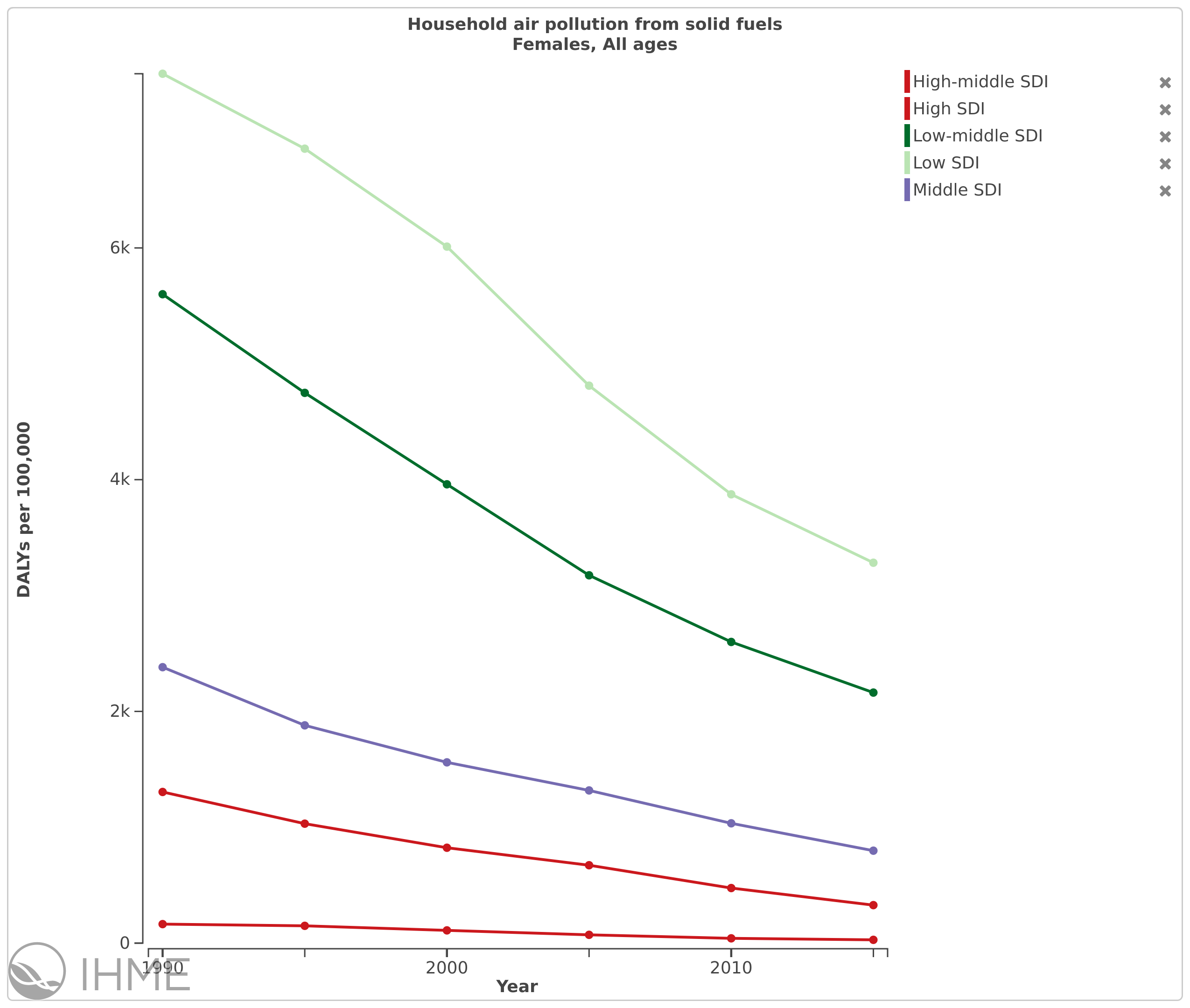As the 115th Congress convenes for the first time in the new year, we’re highlighting ways policymakers have used burden of disease evidence when drafting legislation.
Results from IHME’s Global Burden of Disease study have consistently ranked air pollution as a leading risk factor for death and disability, particularly for women and children. Using these findings, US senator Susan Collins introduced a bill that calls for more US involvement in the Global Alliance for Clean Cookstoves, a public-private partnership supported by the UN Foundation, to help achieve its 2020
goals.
Over the past two decades, DALYs (disability-adjusted life years) due to household air pollution from solid fuels, like those used in traditional cookstoves, have declined globally. However, the burden of disease due to exposure to such pollution remains high in less-developed countries, as illustrated in the graph below.

Note: SDI refers to Socio-demographic Index, a measure of development status based on levels of education, fertility, and income.
In October 2015, Senator Collins, with co-sponsorship from Senator Richard Durbin of Illinois, introduced a bill to the US Senate entitled “Clean Cookstoves and Fuels Support Act.” The goal of this legislation is “to promote the use of clean cookstoves and fuels to save lives, improve livelihoods, empower women, and protect the environment by creating a thriving global market for clean and efficient household cooking solutions.”
The senators used GBD data to emphasize the importance of innovative clean cookstoves for improving the health of those most vulnerable, especially in developing countries in Asia and Africa, where exposure is shown to be highest. The bill also references toxic smoke, burns from open fires, and unsafe cookstoves as leading causes of morbidity.
Beyond morbidity and mortality, the bill notes that emissions from traditional cookstoves have a tremendous impact on the environment. As emissions continue, the bill asserts, mitigation strategies need to be implemented to protect communities from the diverse array of public health and environmental consequences.
The bill also points out that efficient and clean cookstoves may decrease a woman’s risk of experiencing gender-based violence: “as nearby fuel supplies dwindle, women are forced to go farther to find fuel to cook their families’ meals. In some areas, such as conflict zones or refugee camps, women and girls risk rape and gender-based violence during the up to 20 hours per week they spend away from their communities gathering firewood.”
The data speaks for itself, and the United States government is not the only one making use of it. Professionals in India have been using GBD results to recognize the burden of rural cookstoves on their population’s health and call for the revolutionizing of rural cooking in order to save lives in their country.
Already, the Global Alliance has announced that it is making successful strides toward reaching its 2020 goals, including the innovation of creative cookware solutions and adoption in 100,000,000 homes. The Clean Cookstoves and Fuels Support Act highlights the need to create and disseminate innovative solutions in order to improve the lives of women and children living in low-income countries.
Note: The introduced bill has not been signed into law. On October 22, 2015, it was read twice and referred to the Committee on Foreign Relations.